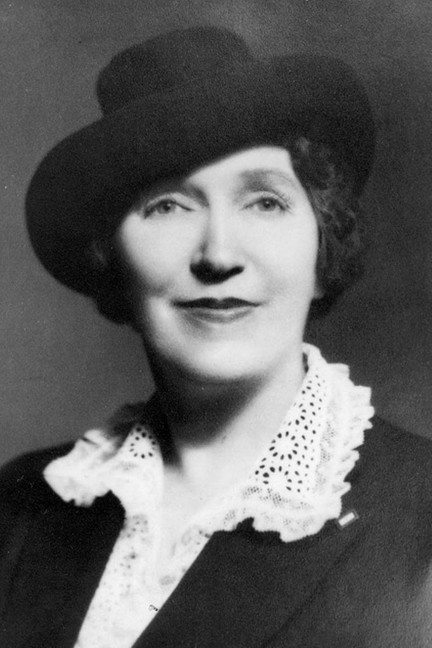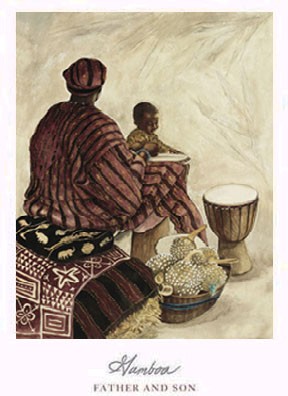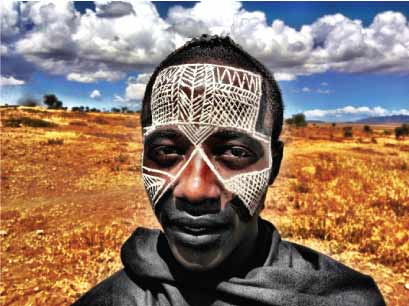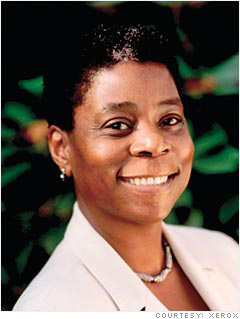|
|
| Culture: Do you know what you celebrate? |
 Sonora Smart Dodd Sonora Smart Dodd
It is stated in various sources that the world owes thanks to Ms. Sonora Louise Smart Dodd a loving daughter of Mr. William Jackson Smart, a Civil War veteran from Spokane, Washington. The idea of Father's Day celebration originated in Sonora's mind when she listened to Mother's Day sermon in 1909. Fairly mature at the age 27, similarly, Sonora engaged to celebrate and honor fathers. The Spokane Ministerial Association and the local Young Men's Christian Association (YMCA) supported Sonora's cause. As a result Spokane celebrated its first Father's Day on June 19, 1910.
Scholars believe that the origin of Father's Day is not a latest phenomenon, as many believe it to be. Rather they claim that the tradition of Father's Day can be traced in the ruins of Babylon. They have recorded that a young boy called Elmesu carved a Father's Day message on a card made out of clay nearly 4,000 years ago. Elmesu wished his Babylonian father good health and a long life. Though there is no record of what happened to Elmesu and his father but the tradition of celebrating Father's Day remained in several countries all over the world.
Modern version of Father's Day celebration originated in United States of America and thereafter the tradition spread in countries around the world.
 By Artist Consuelo Gamboa By Artist Consuelo GamboaLooking at the heightened popularity of Father's Day in the U.S., President Woodrow Wilson approved of this idea in 1916. President Calvin Coolidge too supported the idea of a national Father's Day in 1924 to, "establish more intimate relations between fathers and their children and to impress upon fathers the full measure of their obligations". After a protracted struggle of over four decades, President Lyndon Johnson signed a presidential proclamation declaring the third Sunday of June as Father's Day in 1966. Then in 1972, President Richard Nixon established a permanent national observance of Father's Day to be held on the third Sunday of June.
Sonora Smart Dodd was honored for her contribution at the World's Fair in Spokane in 1974. Mrs. Dodd died in 1978 at age 96
'A man's children and his garden both reflect the amount of weeding done during the growing season.'
|
| Men and Women: Roles in 21st century |
Men and Women: Roles in 21st century
Gender is socially constructed to make a clear division between the two sexes, and to describe their characteristics through gender roles. Gender is different from sex, which is biologically determined.
Culture forms much of what people consider masculine or feminine.
Although we see that gender roles are mainly socially built, it is certain that biologically based characteristics also lead to the development of some traditional social roles.

In the U.S.?
Women in the U.S. got one of their first tastes of the working world during World War II. The men went to war, and the women went to the factories and offices. Though the women returned to their homes after the war, they didn't remain there for long. The social changes of the 1960s and 1970s caused a cultural revolution that found many women pursuing careers outside the home. In recent years, more men have expressed a desire to take on the role of primary caregiver to the children.
Among the many news stories dedicated to the recession that gripped the United States in the late 2000s were several pieces that asked whether the economic downturn had led to a change in traditional gender roles. More than 80 percent of the jobs lost during the recession had belonged to men, which led to women holding the majority of jobs in the United States for the first time ever. Men who lost their jobs were employed in fields like construction and finance, whereas the women had been in slightly steadier fields like teaching and health care, fields where there will always be a demand for workers. With their husband’s unemployed, women would now take on the role of breadwinner, while the men would take care of the home.
|
|
What about Africa?
"When we talk about women's rights, some men think this means the emasculation or the disempowerment of men," … "This is not true, because all nations that prosper can only achieve this through mutual respect and the working together of both men and women" stated KwaZulu-Natal Premier Zweli Mkhize, to thousands of men at a provincial Men's Imbizo in Pietermaritzburg, South Africa.
Speaking ahead of South Africa's celebration of the role of women as equal partners in society on National Women's Day, He made reference to Mkabayi, the daughter of Inkosi Jama – one of the founding fathers of the Zulu nation – who was able to take a decision that even men could not take in order to promote the advancement of the Zulu nation. Read more at http://www.southafrica.info/news/mens-imbizo11.htm#ixzz1y4afzFxy
Role in Business
According to "The Wall Street Journal," twice as many women as men started businesses between the 1980s and the first decade of the 21st century, but this only narrowed the existing gulf between the total number of businesses owned by men and those owned by women. Revenues in companies owned by women are 27 percent that of male-owned companies.
 Ursula M. Burns serves as Madam Chairman (or Chairperson) and CEO of Xerox. She is the first African-American woman CEO to head a Fortune 500 company. She is also the first woman to succeed another woman as head of a Fortune 500 company. In 2009, Forbes rated her the 14th most powerful woman in the world. Source: Wikipedia Ursula M. Burns serves as Madam Chairman (or Chairperson) and CEO of Xerox. She is the first African-American woman CEO to head a Fortune 500 company. She is also the first woman to succeed another woman as head of a Fortune 500 company. In 2009, Forbes rated her the 14th most powerful woman in the world. Source: Wikipedia
Men tend to start their own companies in order to “be their own boss,” which is compatible with growing a business as large as possible. Women generally start companies with the goal of integrating work and family, a goal that is more consistent with keeping the size of their companies smaller and more manageable.
A sentiment that has been enforced across initiatives and programs is the growing acceptance that the development community's best solution is to teach the men alongside the women. Then the men feel involved with the process as well as the progress, and there is less resistance and suspicion from everyone. MARY BETH POWERS Director of Primary Health Care Unit, CARE New York, Dec. 5, 1991. Source: http://www.nytimes.com/1991/12/24/opinion/l-for-african-men-a-development-role-395491.html
|
|
| AGOA 2012 |
|

The AGOA CSO session 2012 opened with H. E. Sheila Siwela, Ambassador of the Republic of Zambia to the US, and outgoing Chair of the AGOA Ministerial Planning Committee, and Florie Liser, Assistant U. S. Trade Representative for Africa, Office of the U.S. Trade Representative. The program was held at the Washington Plaza Hotel and the Woodrow Wilson Center in Washington DC with panels ranging from the “CSO’s Role in Effecting Legislative Reforms that Enhance US Africa Trade Beyond the Expiration of AGOA in 2015“, “Strengthening Africa SME’s Capacity to Diversify Imports under AGOA”, “Engaging the Diaspora as Culture Brokers for US-Africa Trade and Investment Expansion”, and “Public Private Partnerships: A Platform for Supporting Youth Entrepreneurs".
Assistant Secretary Johnnie Carson gave a keynote address at the Civil Society Organization (CSO) Session on June 13, 2012. At the AGOA ministerial held on the 14th and 15th of June, also held in Washington DC, received Mr. Ntal Almasi from the Africa House and Mr. Savior Mwambwa from Centre for Trade Policy and Developmentin Zambia, to read the communiqué drawn from the AGOA 2012 CSO session.
Rahel Getachew, managing director of Afrolehar, was involved in the organization of AGOA 2012 Civil Society Organization session, and served as a co-chair of the working group with Mr. Dennis Matanda, government relations director of AfricanMavenGroup, a company focusing on project management in Africa.
Afrolehar produced the program book; click here to take a glance. A special thanks to our longtime supporter and sponsor, Danya International www.danya.com.
AGOA 2013 will be held in Ethiopia. We will keep you informed. For more information about AGOA please visit http://agoa.info/?view=.&story=news&subtext=1634.
|
|
| White House Strategy Towards Africa -specifically Sub-Saharan Africa |
|
The new strategy sets forth four strategic objectives, as described below, and commits the United States to elevate its efforts on the first two of these four pillars.
- Strengthen Democratic Institutions: To advance democracy by strengthening institutions at every level, supporting and building upon the aspirations throughout the continent for more open and accountable governance, promoting human rights and the rule of law, and challenging leaders whose actions threaten the credibility of democratic processes. As the President said in Ghana, “Africa does not need strong men, it needs strong institutions.”
- Spur Economic Growth, Trade, and Investment: To promote economic growth, including through increased trade and investment in sub-Saharan Africa. The United States will promote an enabling environment for trade and investment; improve economic governance; promote regional integration; expand African capacity to effectively access and benefit from global markets; and encourage U.S. companies to trade with and invest in Africa.
- Advance Peace and Security: To deepen its security partnership with African countries and regional organizations to meet the basic security needs of its people. Only Africa’s governments and people can sustainably resolve the security challenges and internal divisions that have plagued the continent, but the United States can make a positive difference.
- Promote Opportunity and Development: To focus on sustainable development outcomes and the new operational model for U.S. development assistance outlined in the 2010 Presidential Policy on Global Development.
For the complete document please visit http://www.whitehouse.gov/the-press-office/2012/06/14/fact-sheet-new-strategy-toward-sub-saharan-africa
|
|
Fun Fact about Africa: Sudan has more Pyramids than Egypt. The 223 pyramids are smaller and steeper than their Egyptian counter parts, but the Nubians were obviously very busy people around 4 BC - 3 AD.
|
| Book To Read |
EAMG |
|
Winner Take All represents the penetrating research Dambisa Moyo has conducted to uncover the realities behind the numbers.
Dambisa Moyo was named by Time Magazine as one of the 100 most influential people in the world. She is the New York Times bestselling author of Dead Aid and How The West Was Lost.
Jim Rogers, author of Hot Commodities says "Dambisa Moyo offers a smart primer for investors looking to make sense of the opportunities and risks in the commodity space today. You must read this book if you want to understand the reality of what's happening in the world today."
To know more about the author and the book, please visit: http://www.dambisamoyo.com/books-and-publications/book/winner-take-all
|
Ethiopian African Millennium Group (EAMG) is established to promote the historical linkages between Ethiopia and Africans on the continent and abroad.
5 years ago, the group came together to organise the celebration of the Ethiopian calendar millennium. Here we are in 2012, the group with its partners, collaborators and sponsors will hold the launch of the annual Ethiopian New Year (Enqutatash) celebration on the National mall, in the heart of the District of Columbia.
As one of the sponsors, we built the website. Please visit www.ethiopiannewyear.com.
If you choose to sponsor or donate, please indicate you have been referred by Afrolehar.
|
  |
| © 2012 Afrolehar |
| Unsubscrbe from Newsletter |
|